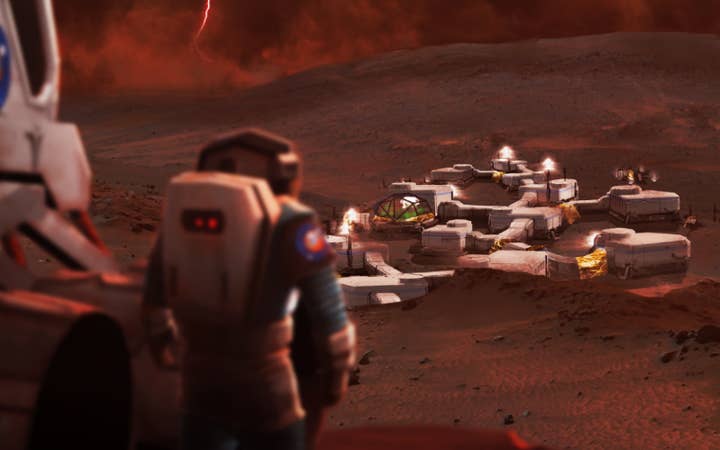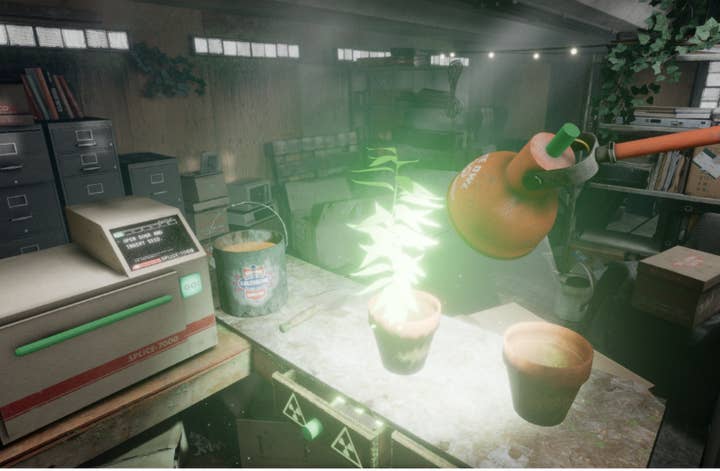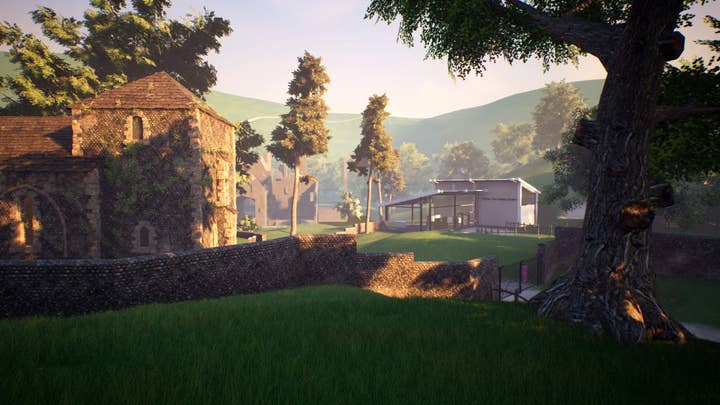Meet the finalists of Epic and Wellcome's Developing Beyond competition
Untold Games, All Seeing Eye and Lost Forest Games will each receive $60k to continue work on their games
The three finalists in the Developing Beyond challenge were announced at the Develop conference in Brighton today. Each team will receive an additional $60,000 to continue the development of their projects.
The competition started in February this year, backed by a $500,000 prize fund from Epic Games and Wellcome. The six selected teams were each given $15,000 to make games based on the theme of "Transformations", drawing ideas from science and using Epic's Unreal Engine 4.
"It's always surprising to see what happens when scientists and developers work together," said Iain Dodgeon, manager of Broadcast, Games and Film at Wellcome. "Science is inherently creative and so is games development. Developing Beyond creates games for new audiences and a new way for people to explore scientific ideas."
The three finalists were selected from that initial group of six by a panel of industry judges, each of them satisfying Epic and Wellcome's demanding brief.
Terramars

Untold Games' Terramars is a strategy game in which a team of scientists must establish a research station in the inhospitable Martian environment. A dense web of interconnected mechanics must be kept in balance to ensure the scientists remain healthy and happy enough to carry out their missions around the research station and on the planet's surface. Each scientist in the team of six is also an individual, with professional specialisms and a personal backstory.
Going forward, the team at Untold Games will be experimenting with adding extra mechanics around survival, including the possibility of allowing the game to progress even if individual scientists die.
Seed

All Seeing Eye has worked on a variety of VR projects with a variety of partners, but Seed is its first original game IP. In Seed, the player is in a science lab containing equipment to engineer plant life; there is a selection of coloured seeds, pots and soil with which to plant them, a hose to provide water, and a lamp to encourage growth. Producing a plant is simply a matter of combining these elements in the correct order - a satisfying tactile experience using the Vive's wand controllers
However, each seed has specific properties, which can be combined using the lab's splicing chamber. Seeds can also be irradiated by being held near radioactive material - helpfully (and dangerously) stored in a desk drawer - and they too can be spliced or planted. The result is a system in which properties stack to produce unique, unexpected results. All Seeing Eye imagines Seed appealing to a broad range of people, from core VR users who enjoyed Job Simulator's tactile tinkering, to more casual users who could relax into an hour or VR gardening each evening (possibly using mobile VR hardware).
Winter Hall

The elevator pitch for Winter Hall is "Gone Home meets Quantum Leap", but Lost Forest Games' inspirations are more intriguing than that suggests. During his career, founder Robert McLachlan has worked on Silent Hill at Climax and Alien: Isolation at Creative Assembly, but Winter Hall is drawn from a distinctly British tradition of the supernatural; think the ghost stories of M. R. James, and films like Witchfinder General and The Stone Tape. It is also drawn from British history itself, allowing the player to inhabit the bodies of multiple characters touched by the Black Death.
The demo we played started in the present day, with an archaeologist working around a Plague Pit near the titular Winter Hall. Discovering fragments of the dead reveals basic information about how they lived and died, but piecing together the rest requires going back into the past and discovering who they really were. Lost Forest Games wants to create an interconnected historical narrative, which restores humanity to a faceless past, and confronts death as a natural, inevitable part of life.
All three finalists will receive a further $60,000 to further develop their games, with id Software founder John Romero joining the judging panel for the last six months of the competition.
The final winner will be decided in January next year, receiving $150,000 as a prize. The second place game will get $50,000, and third place $30,000.
